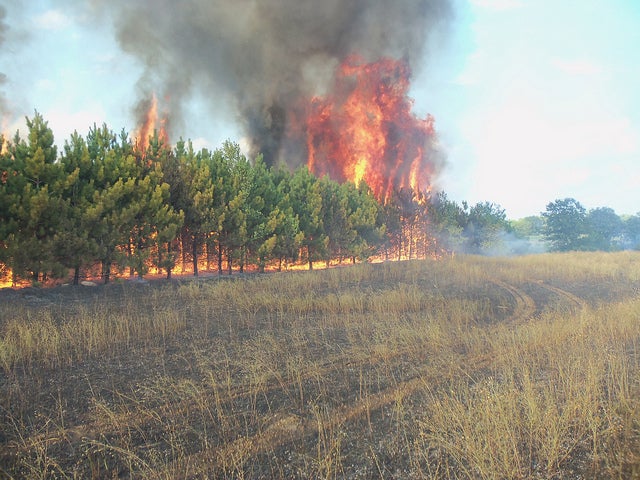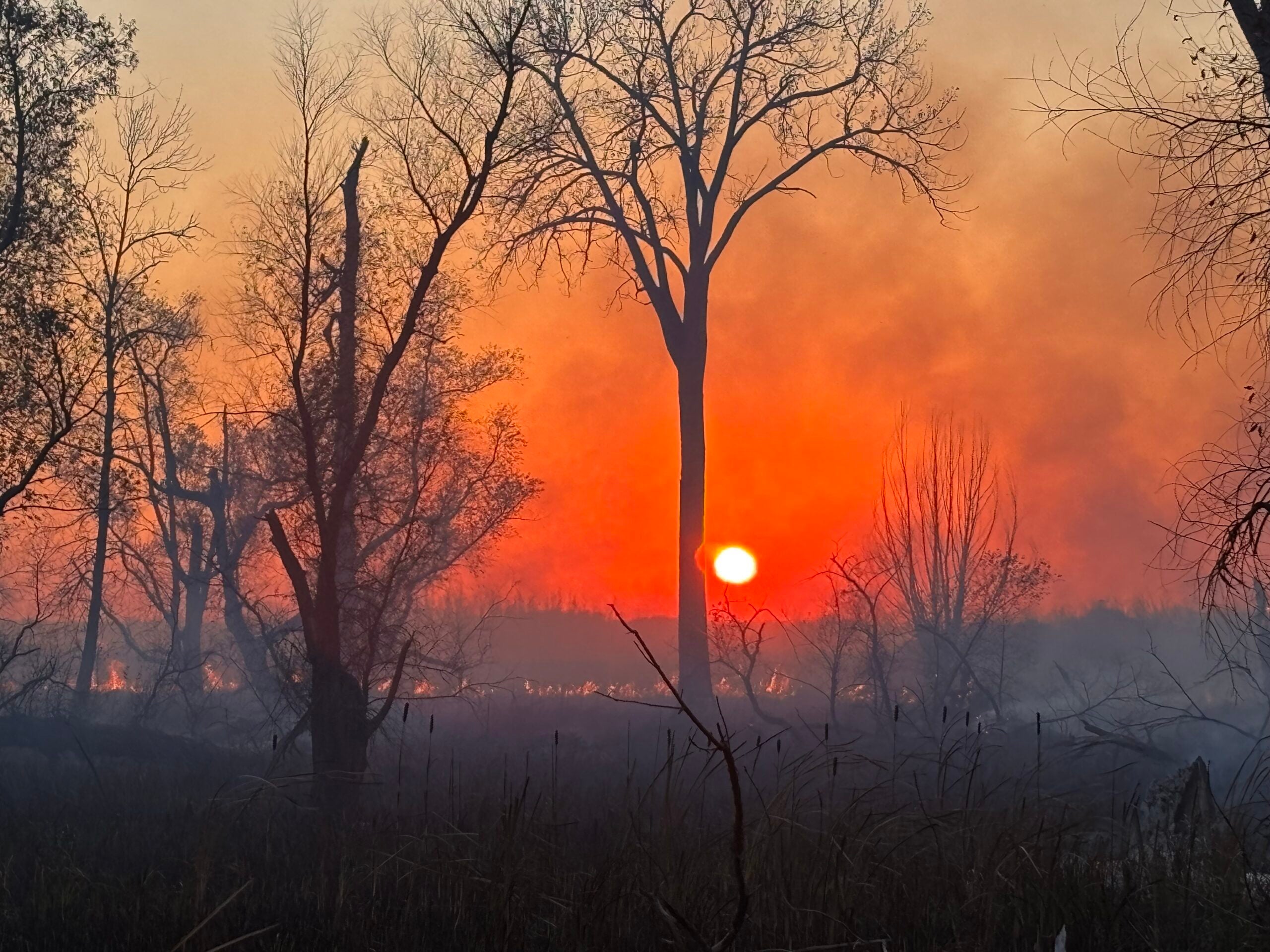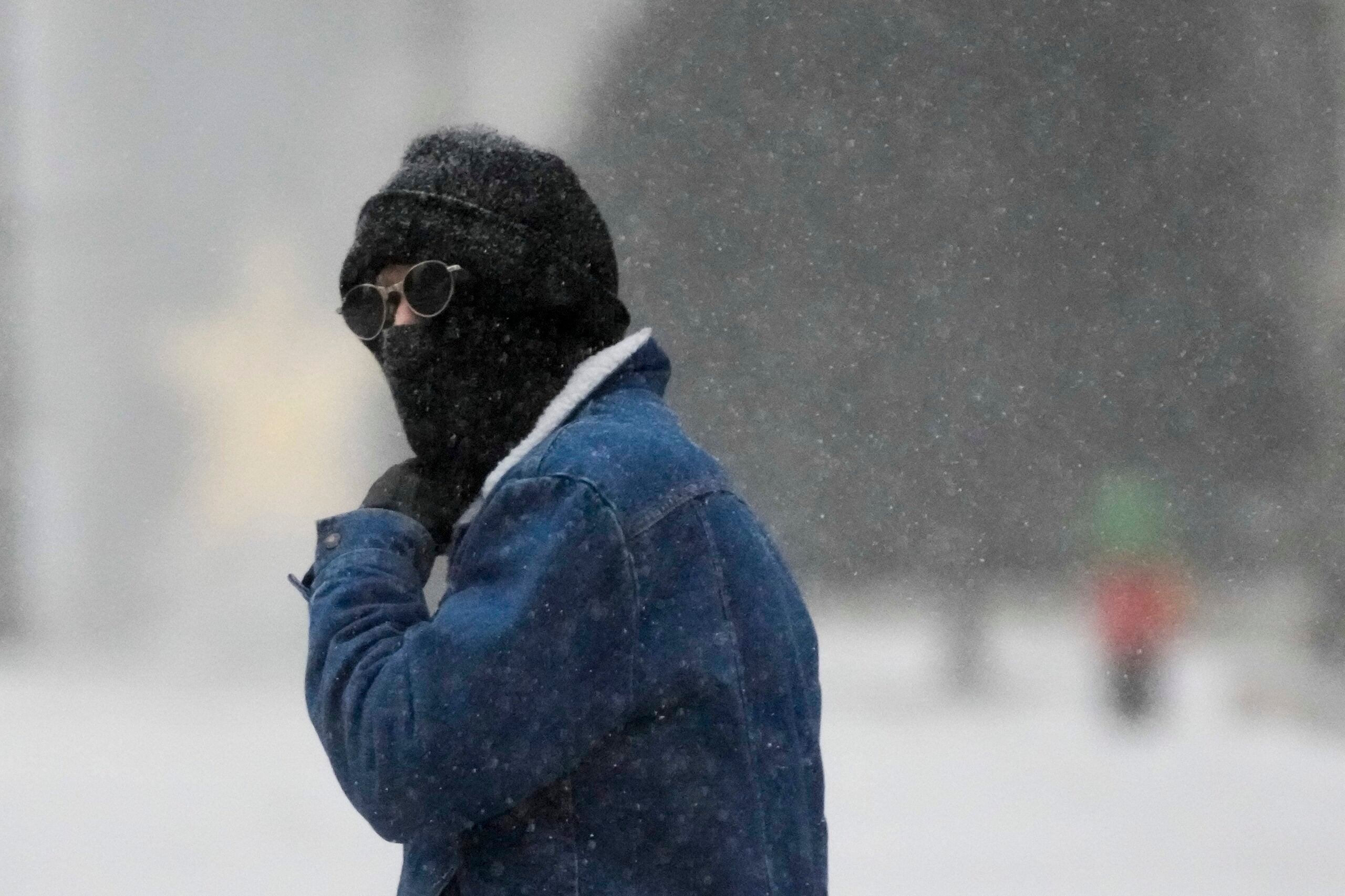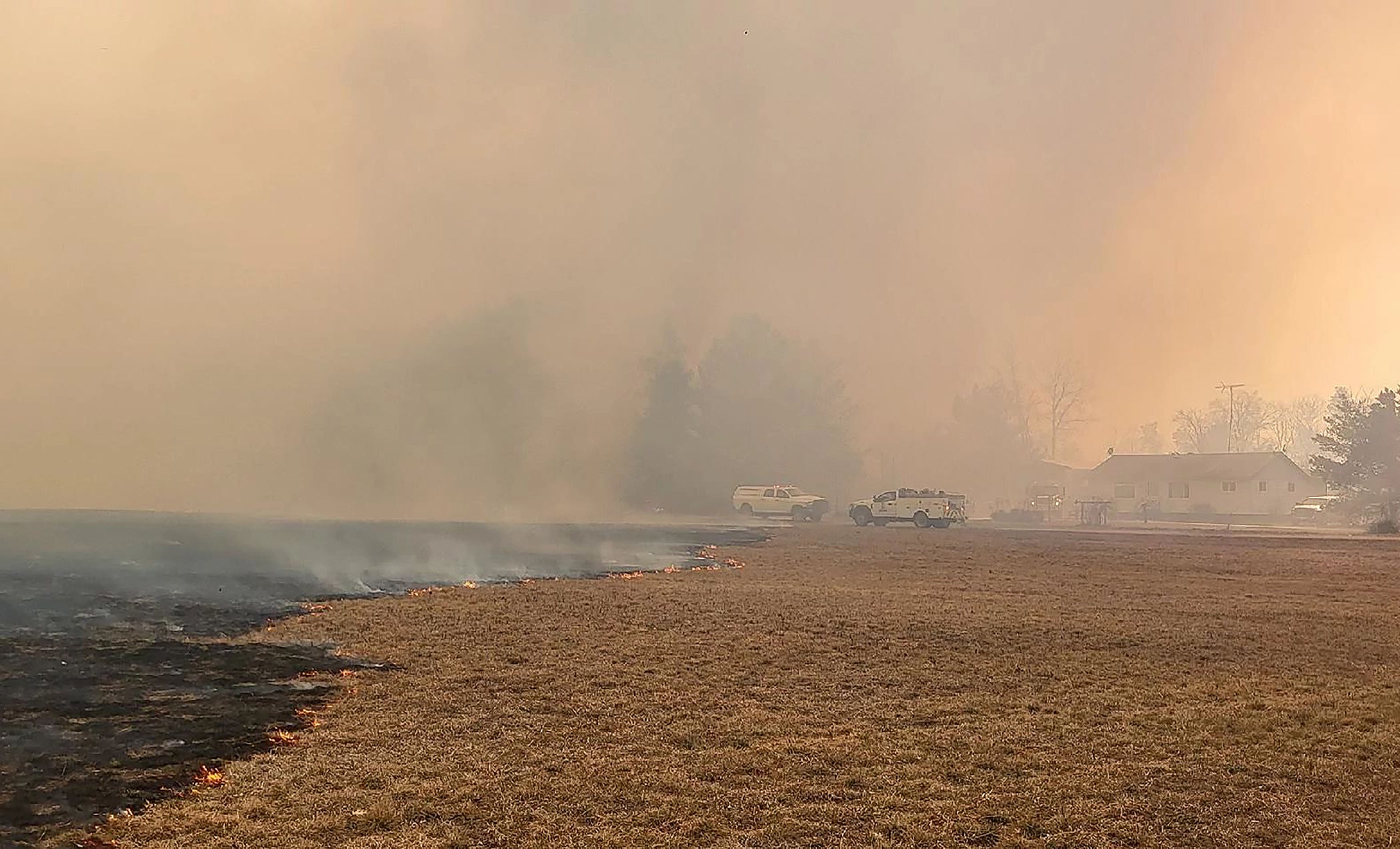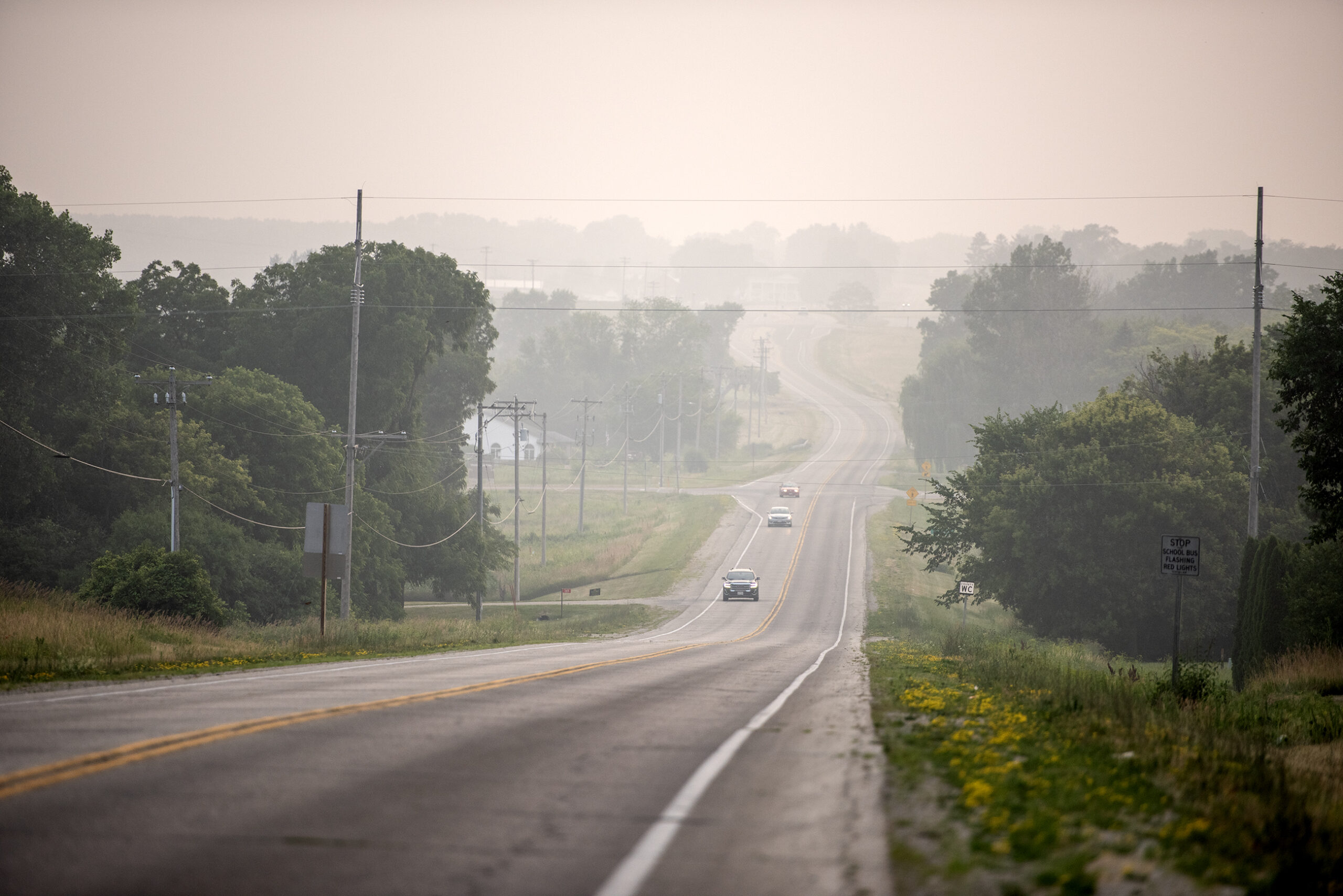Fire danger in southern Wisconsin counties was listed as high Tuesday, but the state Department of Natural Resources is allowing all DNR burning permits because of “favorable weather conditions.”
Spring is wildfire season in the state. So fire danger and burning restrictions change daily.
Every day at 11 a.m. residents can find out if the DNR put in place burn restrictions for that day. They can also stay on top of fire danger in their counties.
Stay informed on the latest news
Sign up for WPR’s email newsletter.
The DNR’s fire dispatch groups dealt with 30 wildfires last week, according to a DNR tweet. In the past two days, there were three wildfires.
DNR fire control responded to 30 wildfires in the last week. Burn permits suspended TODAY, March 19, in 7 southern counties. Dry conditions
— Wisconsin DNR (@WDNR) March 19, 2018
ahead. Stay alert! https://t.co/prOod0VHzX pic.twitter.com/z2BlkRjBdO
Catherine Koele is a wildfire prevention specialist with the state DNR. She said spring is peak wildfire season. When the snow melts and plant life begins to dry, it’s more likely to catch fire.
“We also have a lot of wind in the spring and also a lot of folks out on the landscape conducting outdoor burning, such as debris piles,” Koele said. “These are obviously one of the main reasons we have a lot of wildfires in Wisconsin is due to debris burning.”
Residents can get free burning permits year round from the DNR, but they’re required to check burning restrictions.
Koele encouraged residents to check with local municipalities every day before conducting any burns.
She said the DNR is constantly monitoring the weather, and they issue their daily restrictions based on conditions. The restrictions are in place all day. So, while the fire danger might change throughout the day, the restrictions stay the same.
“We air on the side of safety,” Koele said. “If there’s a questionable day where it may look like the winds are going to stay elevated, we will shutoff burning. So we make that call prior to 11 o’clock on the side of safety. And sometimes we’re wrong, but we’d rather air on the side of safety than make a poor decision.”
The DNR doesn’t regulate campfires or cooking fires, as long as they are small and contained, Koele said.
Koele said this year is following patterns of a traditional fire season with snow melting in the southern part of the state, but remaining in the northern parts of the state.
“The benefit to this year’s fire season is that we have an abundant amount of snow in the north, which is allowing us to move resources down in the southern part of the state,” she said.
Wisconsin Public Radio, © Copyright 2025, Board of Regents of the University of Wisconsin System and Wisconsin Educational Communications Board.
